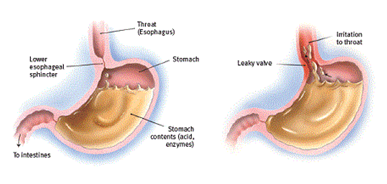Dyspepsia Causes, Symptoms, Diagnosis and Treatment

What is Dyspepsia?
Dyspepsia is a functional disease in which the gastrointestinal (GI) organs, primarily the stomach and first part of the small intestine (and occasionally the esophagus), function abnormally. It is a chronic disease in which the symptoms fluctuate in frequency and intensity usually over many months or years. It may occur every day or intermittently for days or weeks at a time followed by days or weeks of relief.
Causes of Dyspepsia
Dyspepsia is usually related to lifestyle and what we eat and drink. It may also be caused by infection or some other digestive conditions.
Common causes of dyspepsia include:
- Eating too much
- Eating too rapidly
- Consuming fatty or greasy foods
- Consuming spicy foods
- Consuming too much caffeine
- Consuming too much alcohol
- Consuming too much chocolate
- Consuming too many fizzy drinks
- Emotional trauma
- Gallstones
- Gastritis (inflammation of the stomach)
- Hiatus hernia
- Infection, especially with bacteria known as Helicobacter pylori
- Nervousness
- Obesity – caused by more pressure inside the abdomen
- Pancreatitis (inflammation of the pancreas)
- Peptic ulcers
- Smoking
- Some medications, such as antibiotics and NSAIDs (non-steroidal anti-inflammatory drugs)
- Stomach cancer
Symptoms of Dyspepsia
Here are some of the signs of dyspepsia. If you have these signs, or any kind of stomach pain or discomfort, talk to your family doctor.
Diagnosis of Dyspepsia
Dyspepsia is a diagnosis that is made only when no other cause can be found for the symptoms (such as an ulcer). Therefore, prior to the diagnosis being made you may have had a
- Gastroscopy (endoscopy). In this test a doctor looks inside your stomach and first part of your small intestine (the duodenum) by passing a thin, flexible telescope down your gullet (oesophagus). If you have non-ulcer dyspepsia, the inside of your gut looks normal. However, most people with dyspepsia do not have an endoscopy.
- A test to detect the H. pylori germ (bacterium) may be done. If H. pylori is found then it may be causing the symptoms. Briefly, it can be detected in a sample of stools (faeces), or in a breath test, or from a blood test, or from a sample (biopsy) taken during an endoscopy.
Treatment of Dyspepsia
Treatment for dyspepsia depends on what is causing it and how severe symptoms are.
Diet and lifestyle changes
Mediations
- Antacids
- Alka-Seltzer
- Maalox
- Rolaids
- Riopan
- Mylanta
H-2-receptor antagonists
- Zantac
- Tagamet
- Pepcid
- Axid
PPIs (proton pump inhibitors)
- Aciphex, Nexium
- Prevacid, Prilosec
- Protonix and Zegerid
Prokinetics
- Reglan.
Antibiotics
Antidepressants
By : Natural Health News




